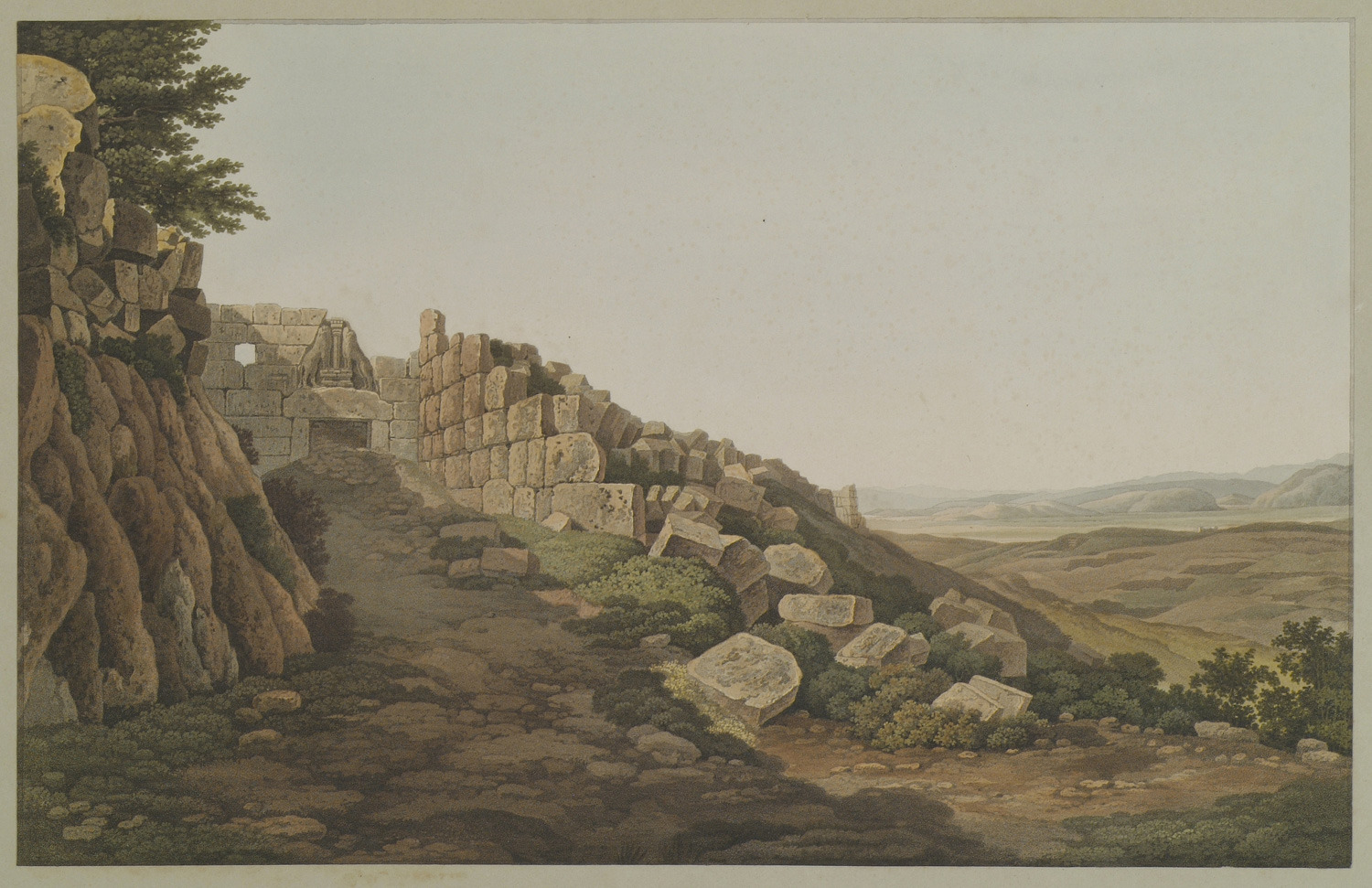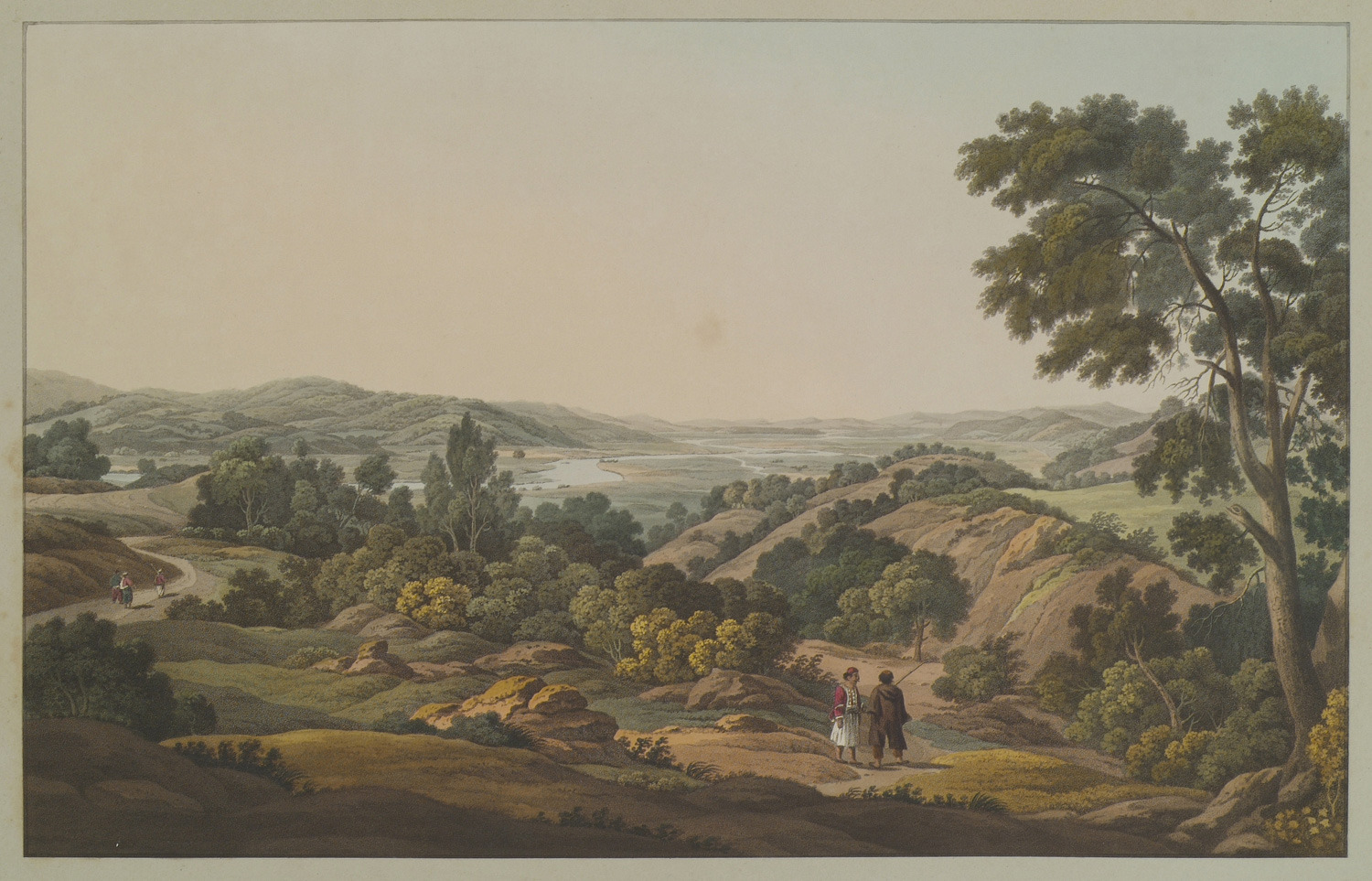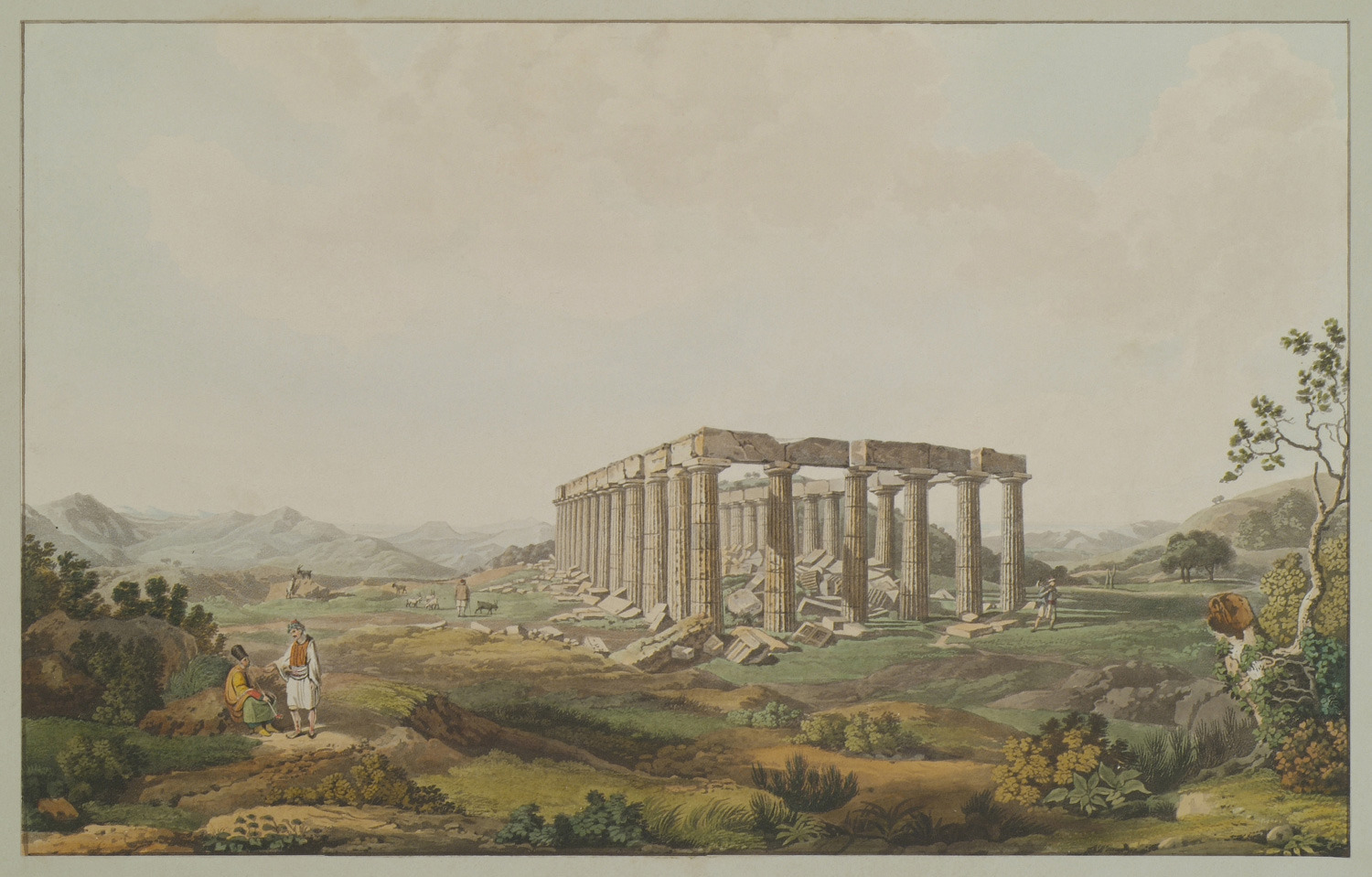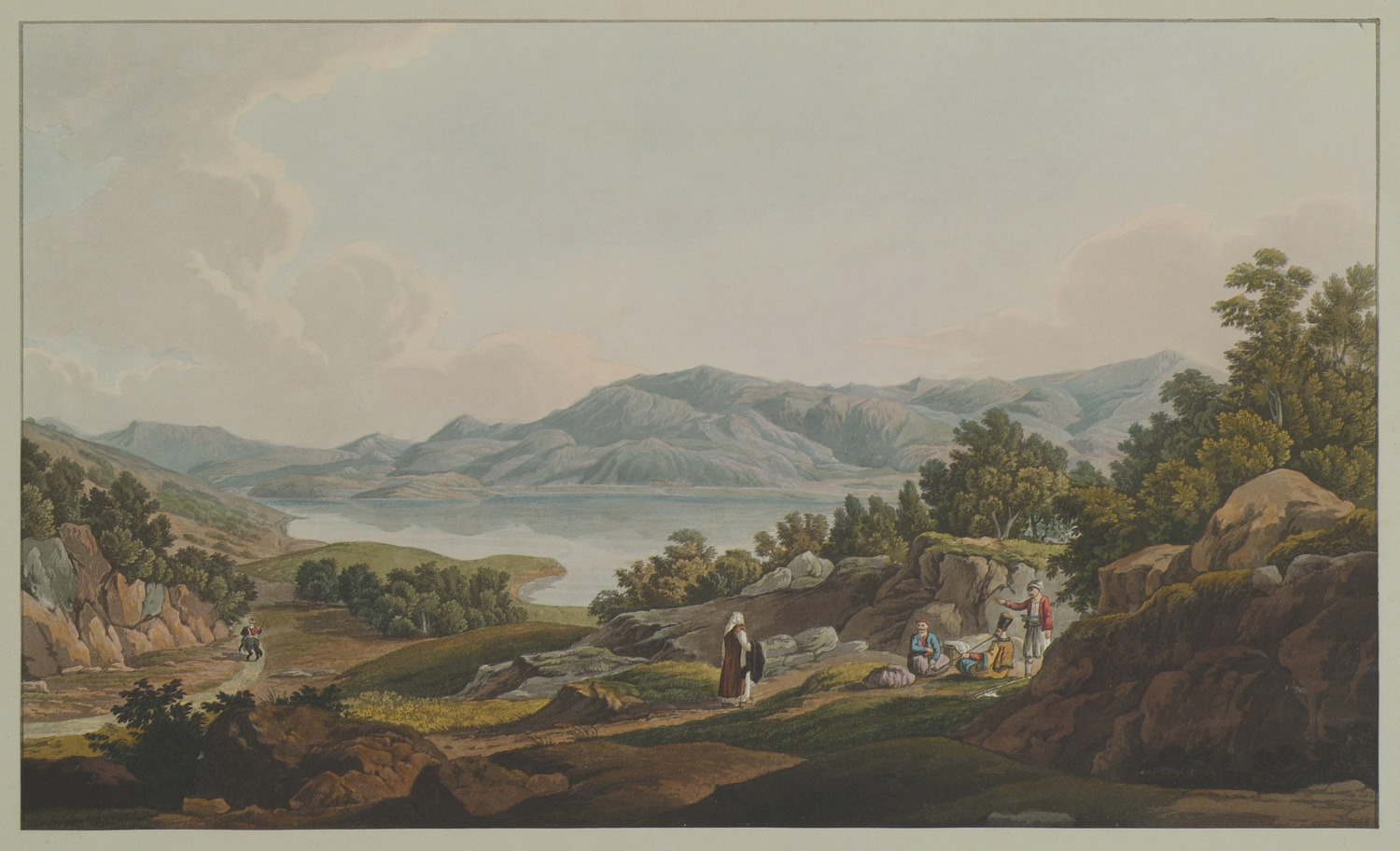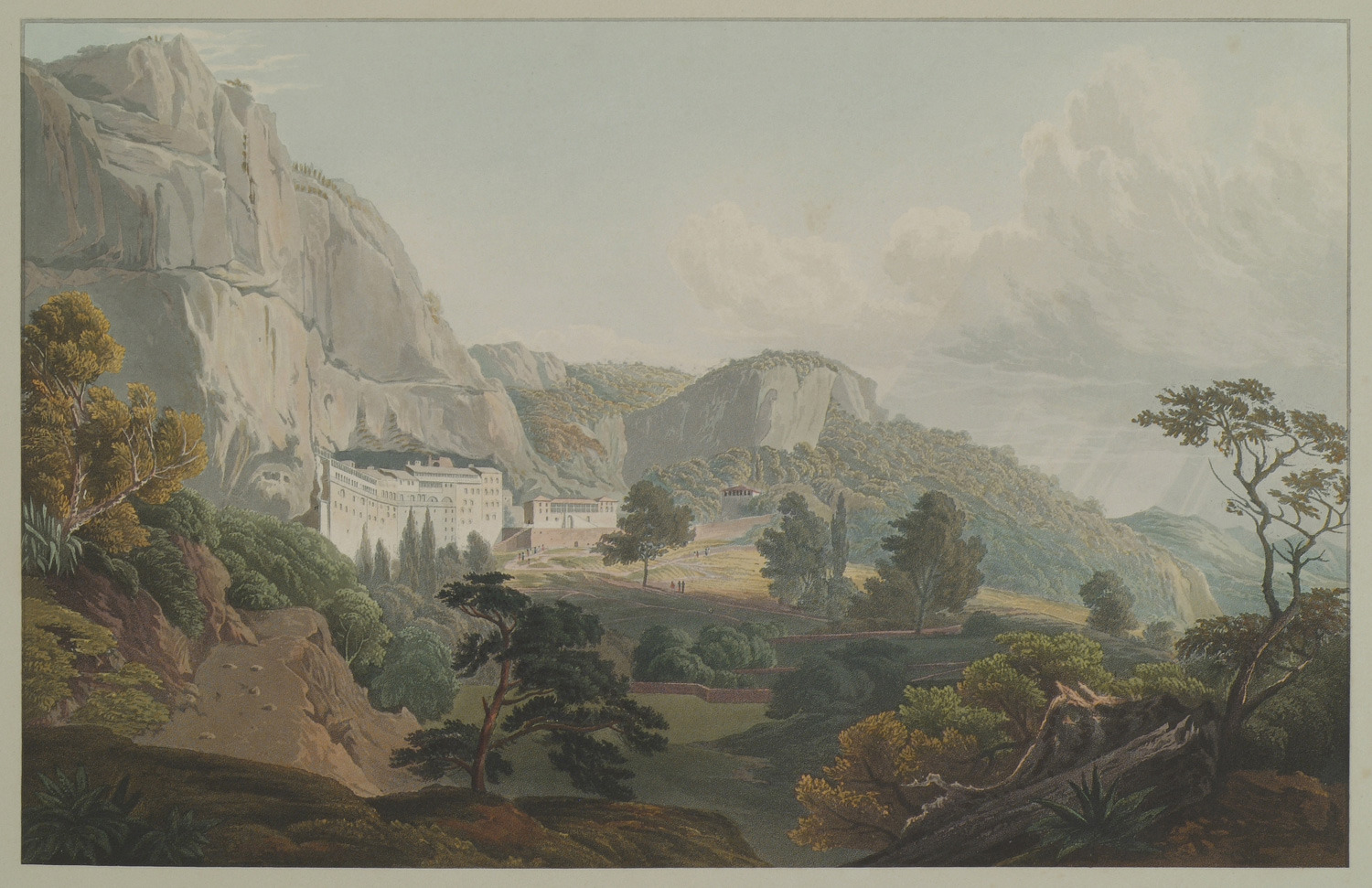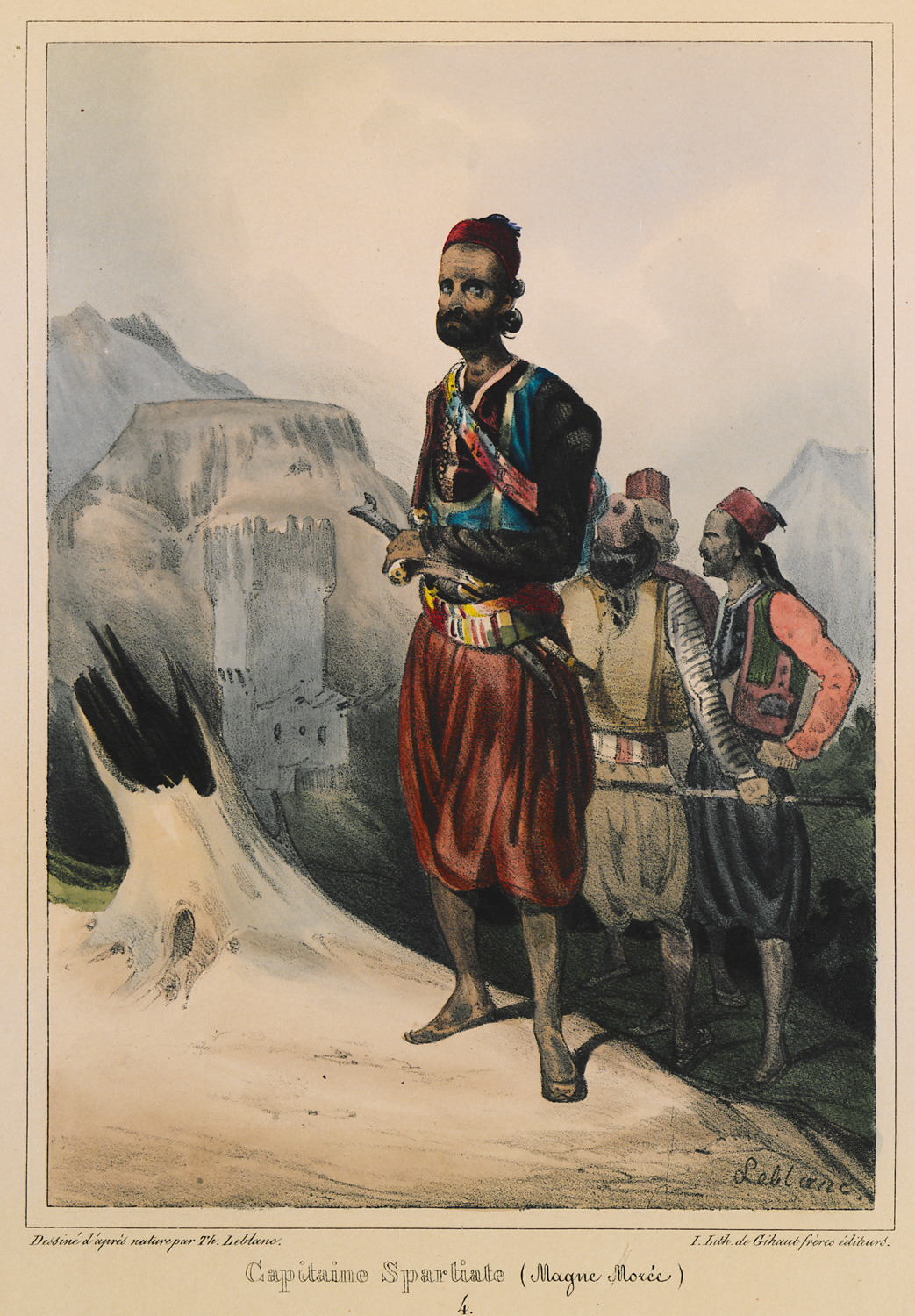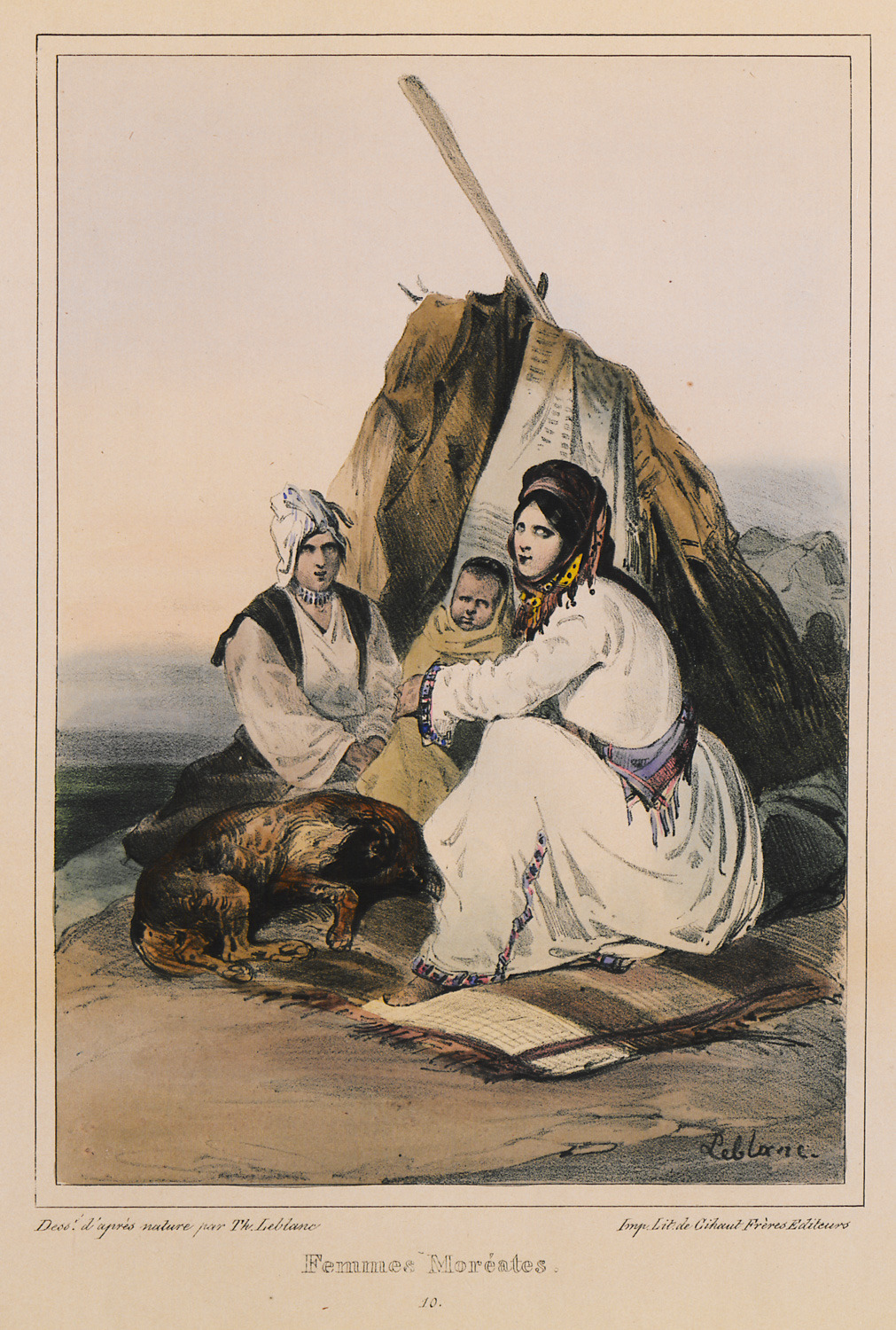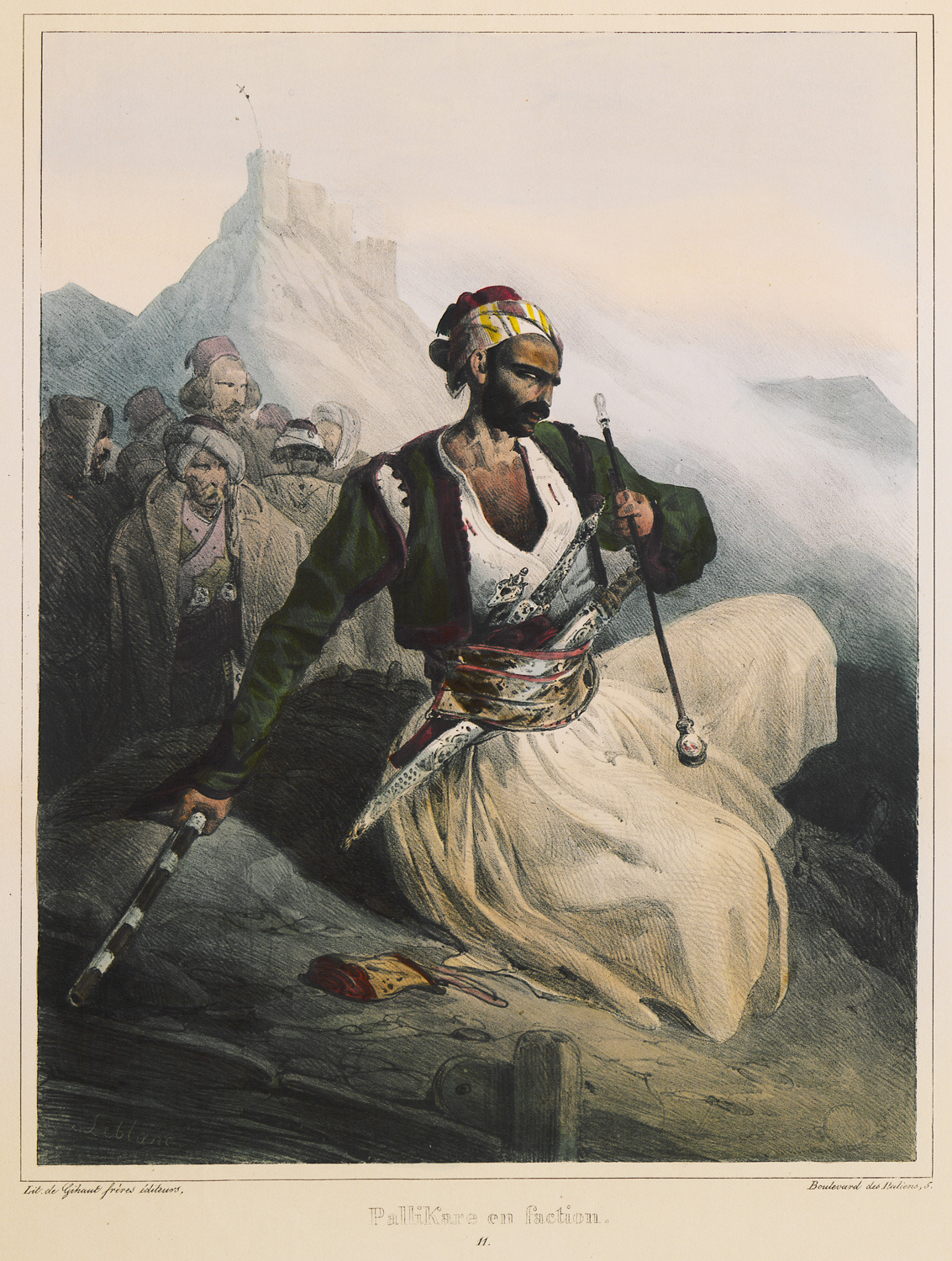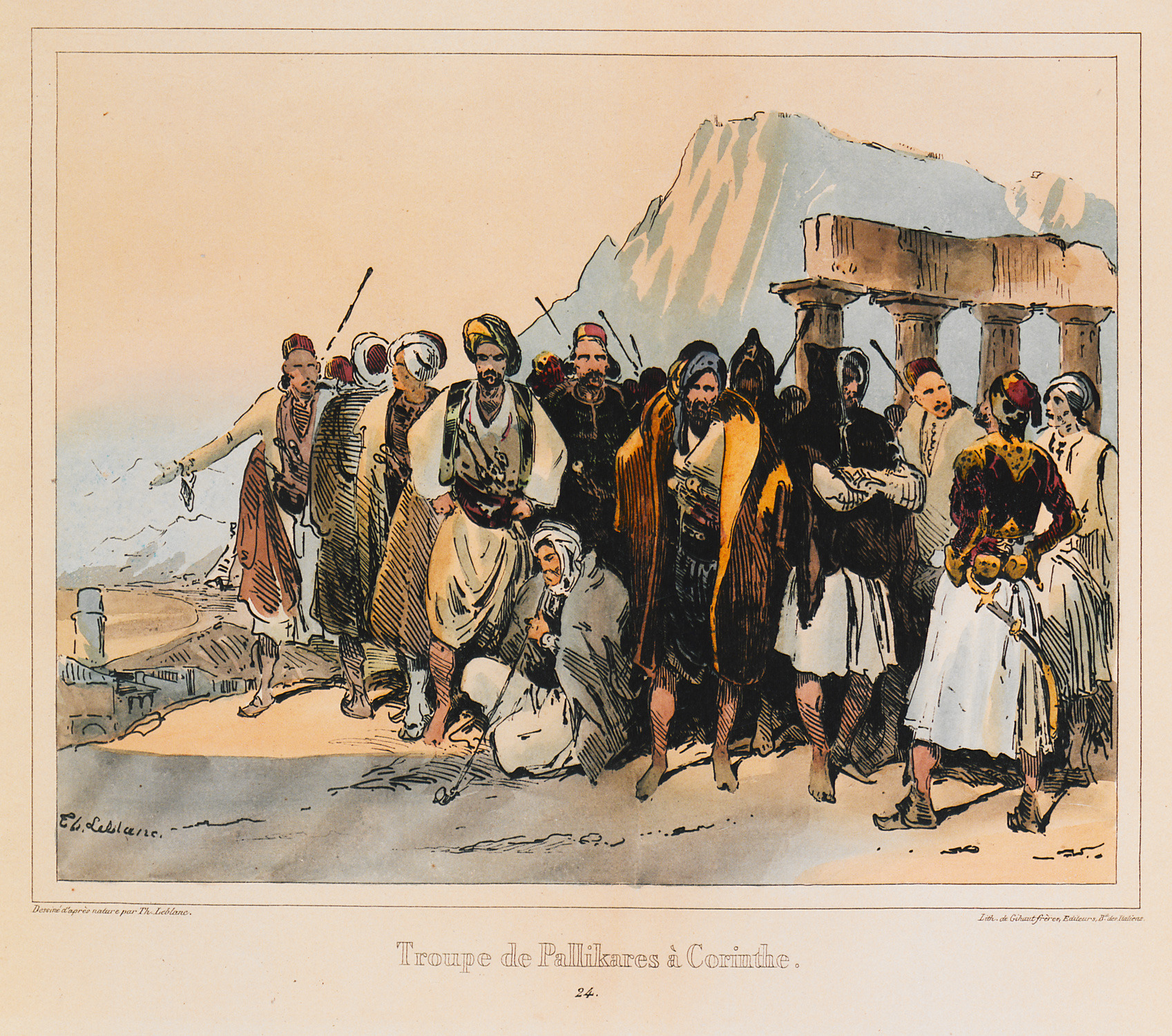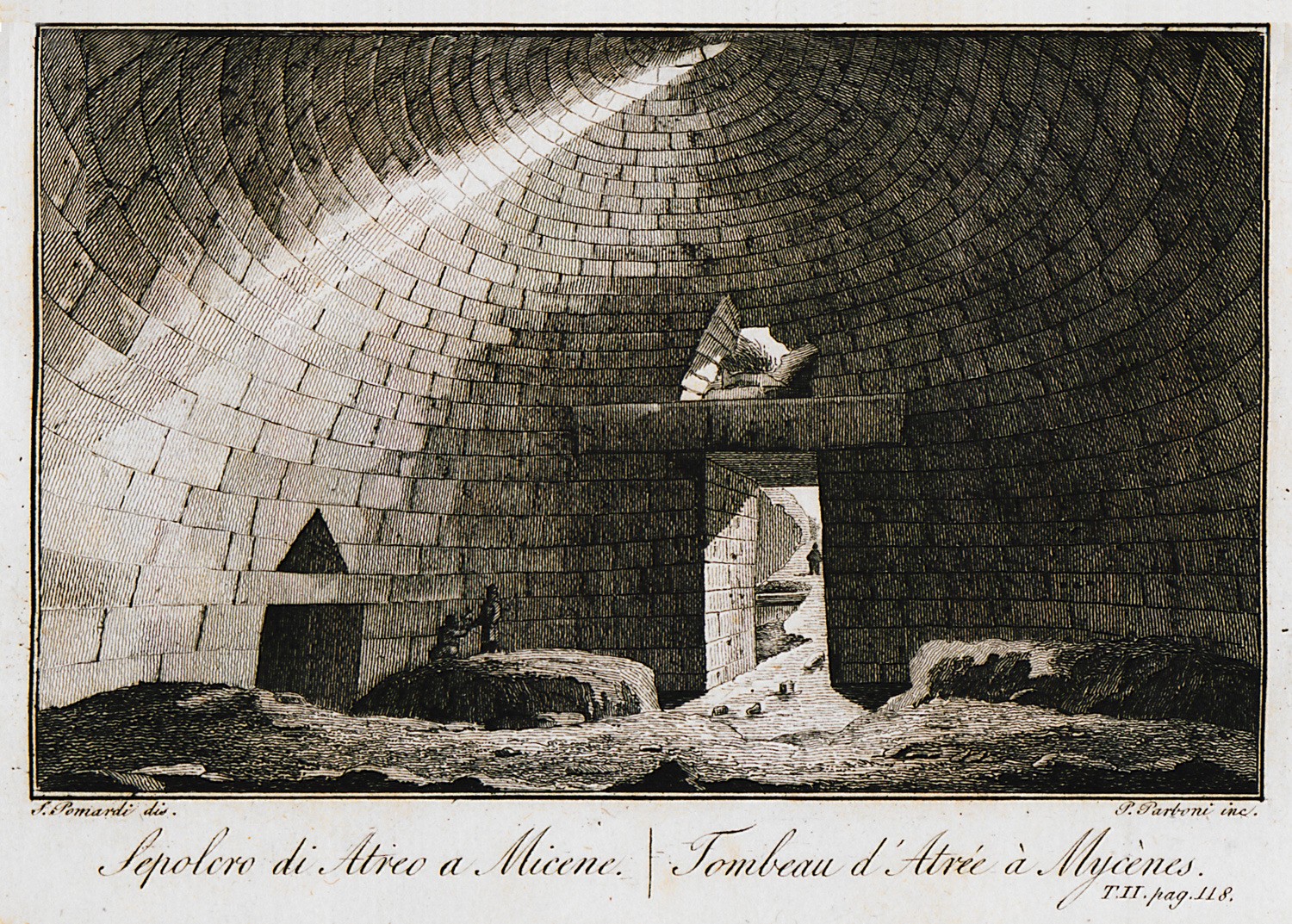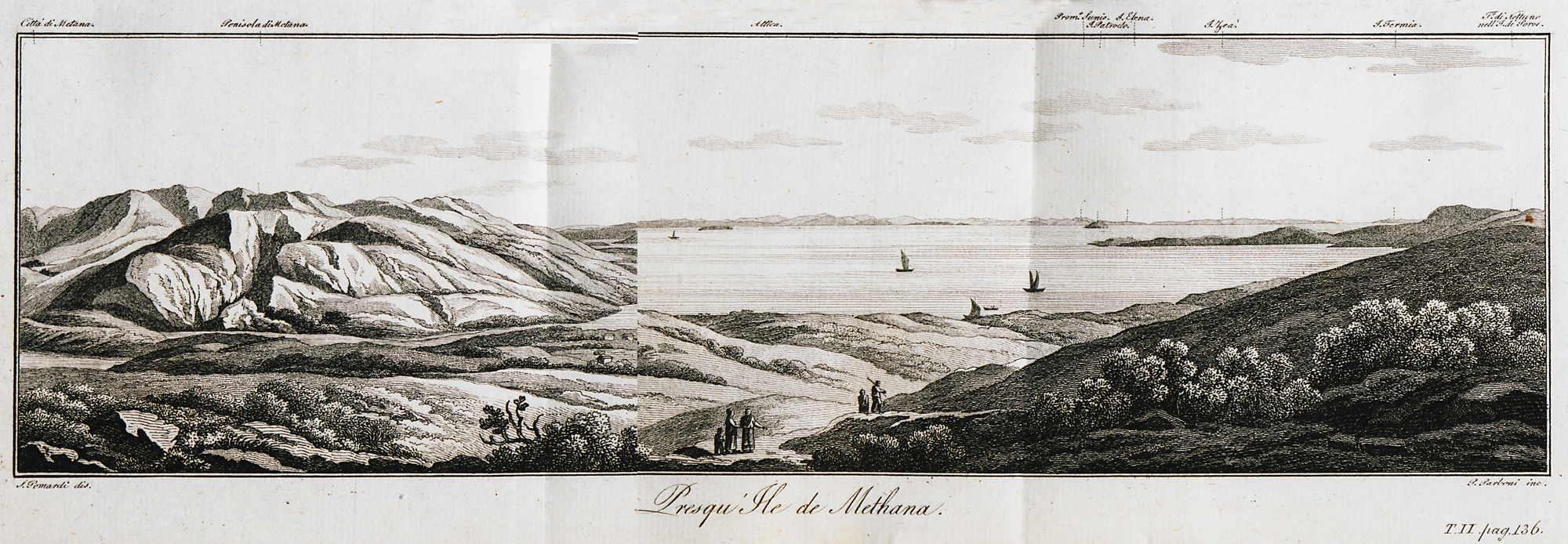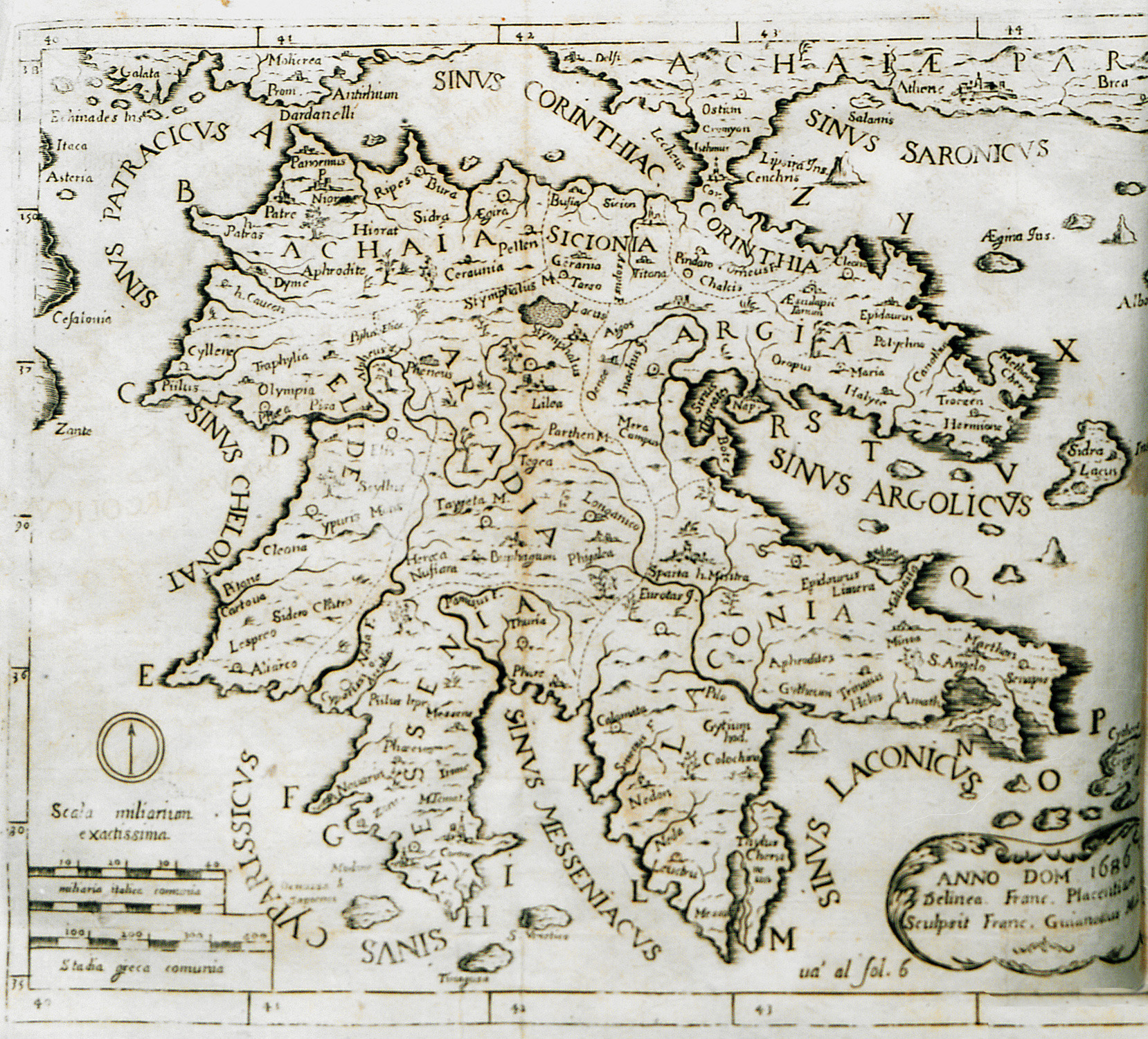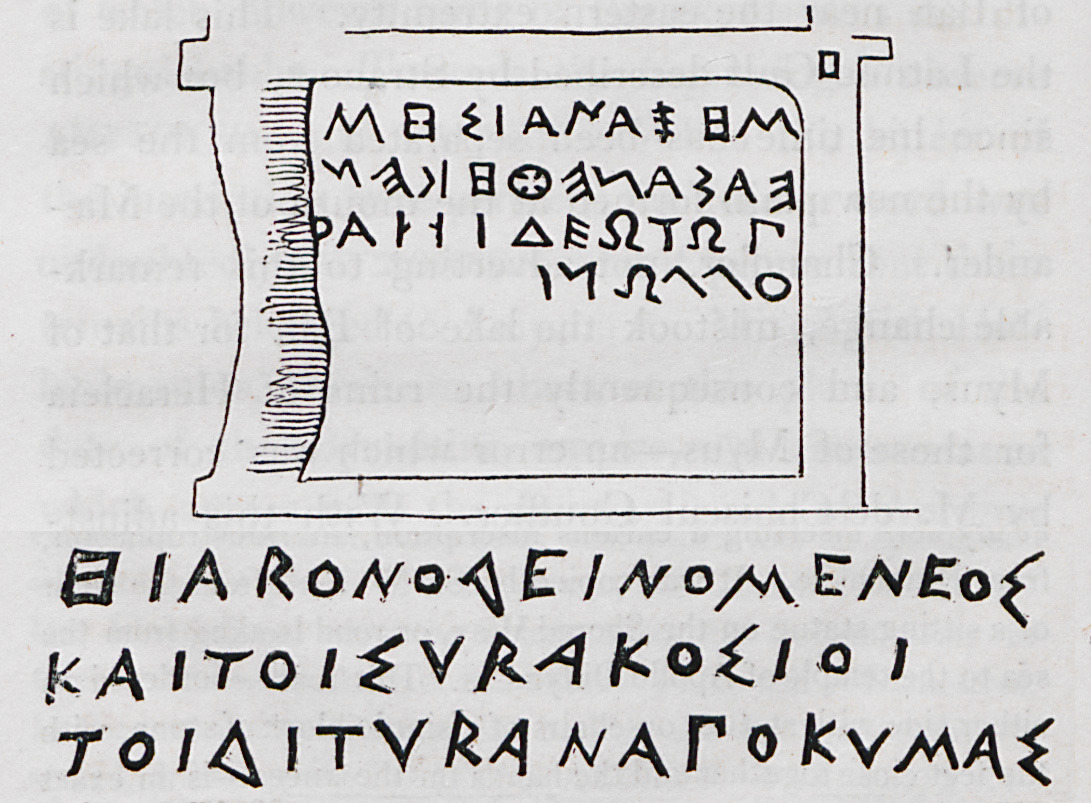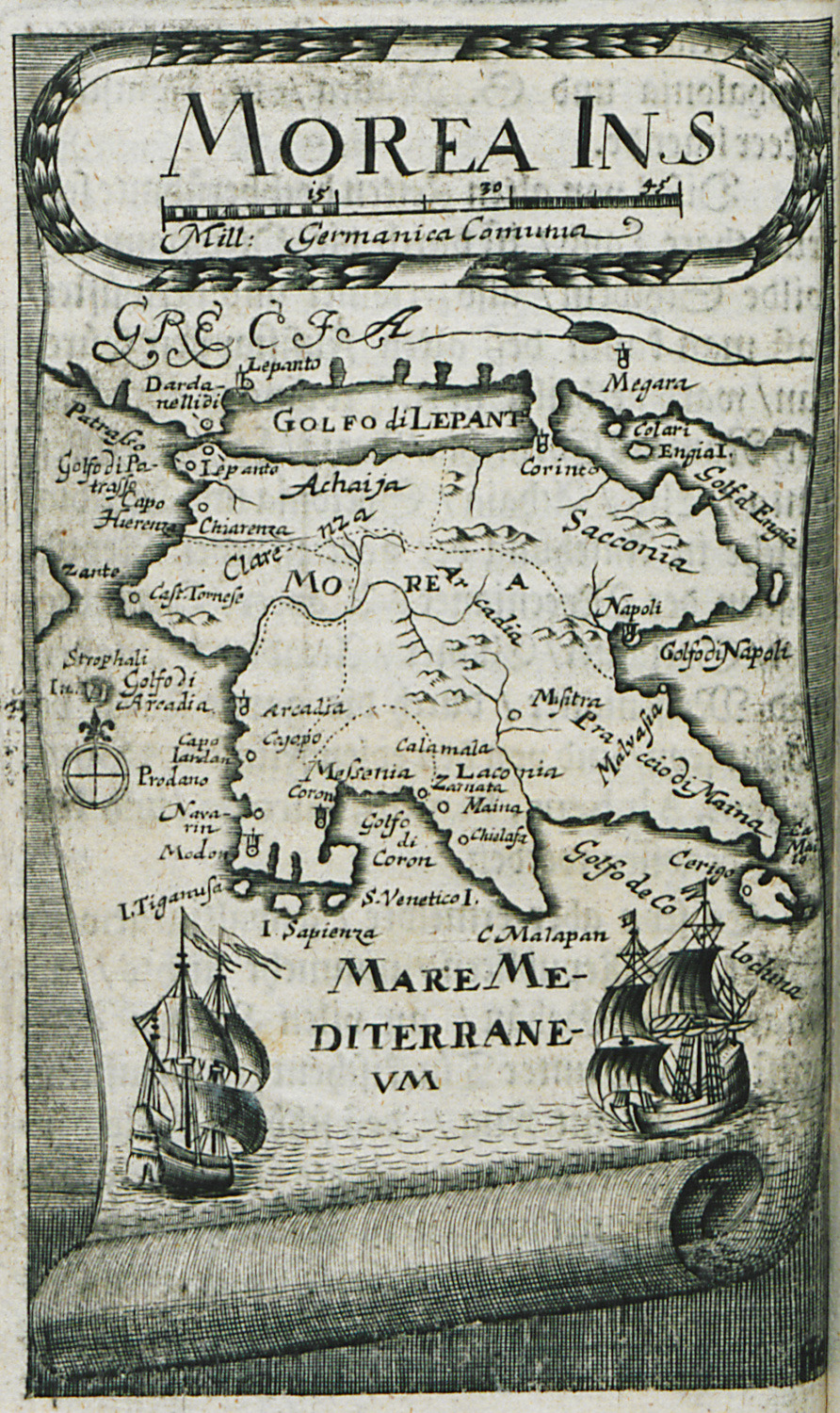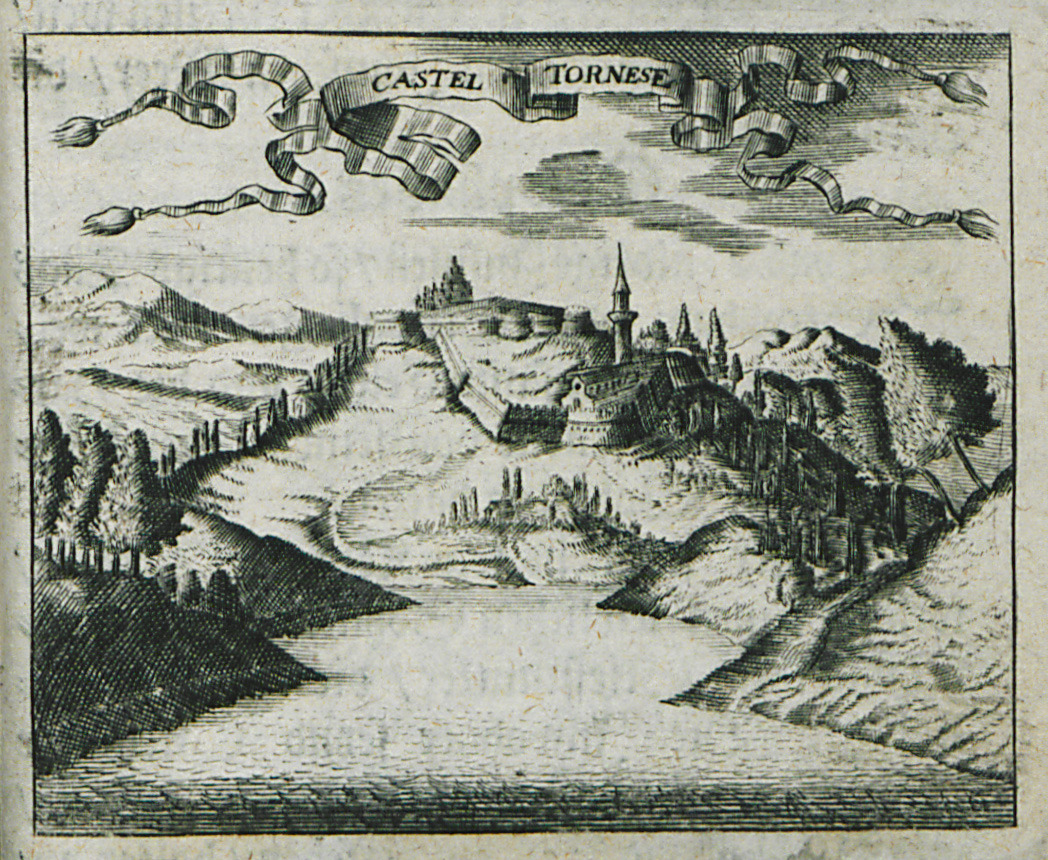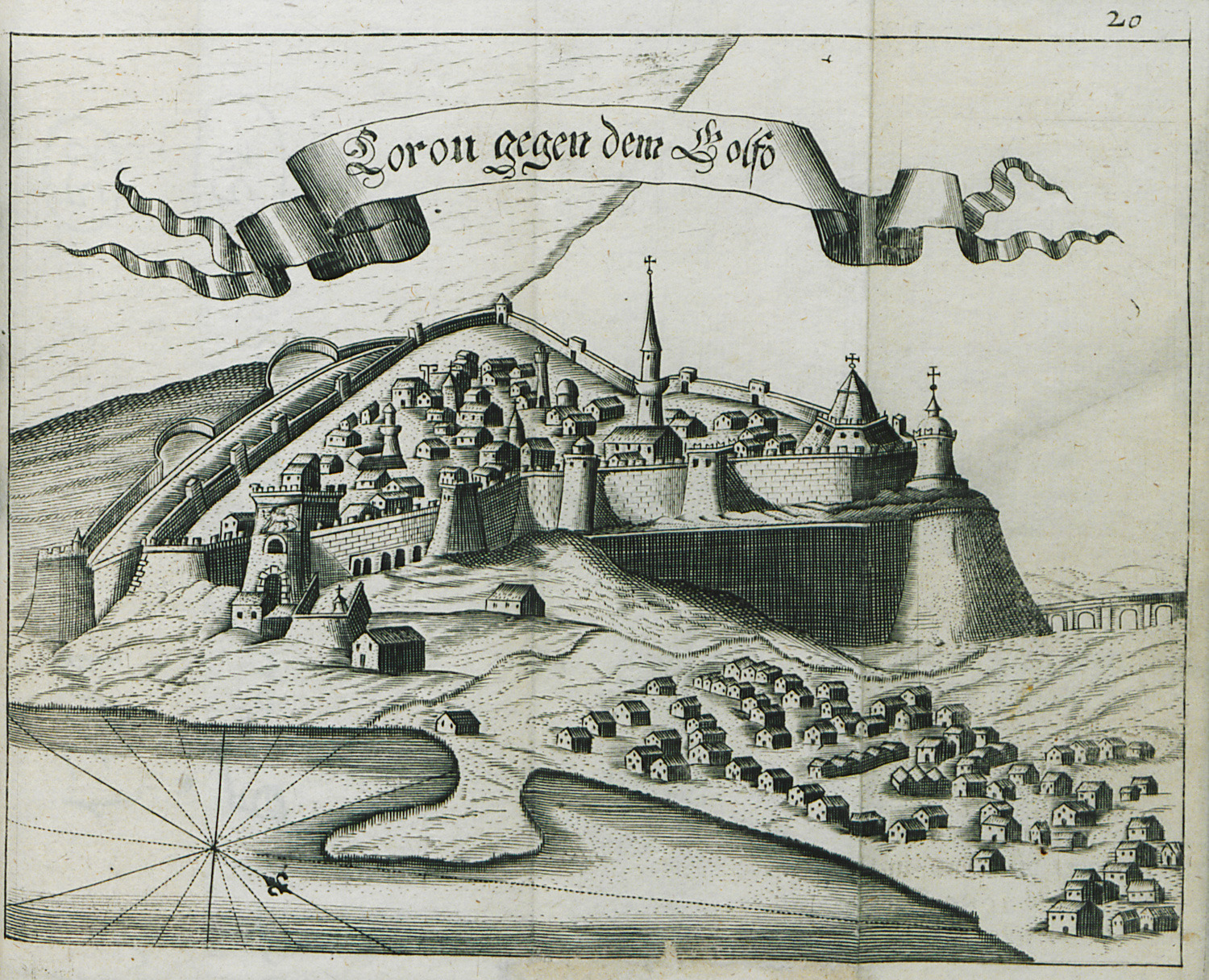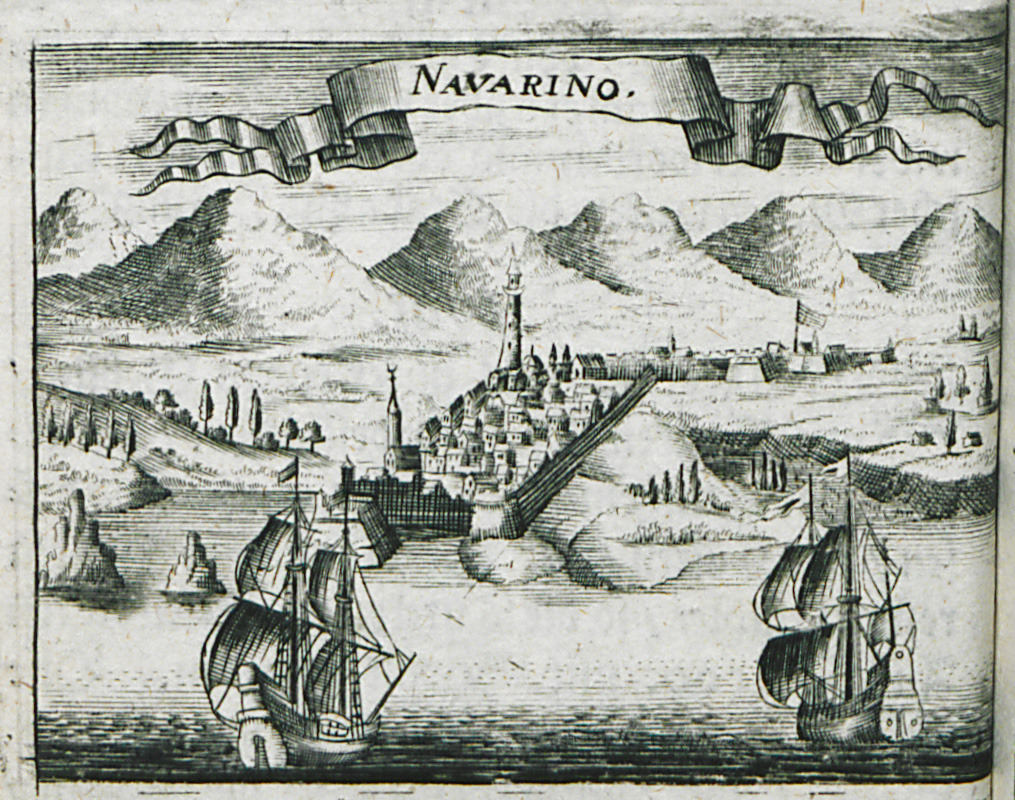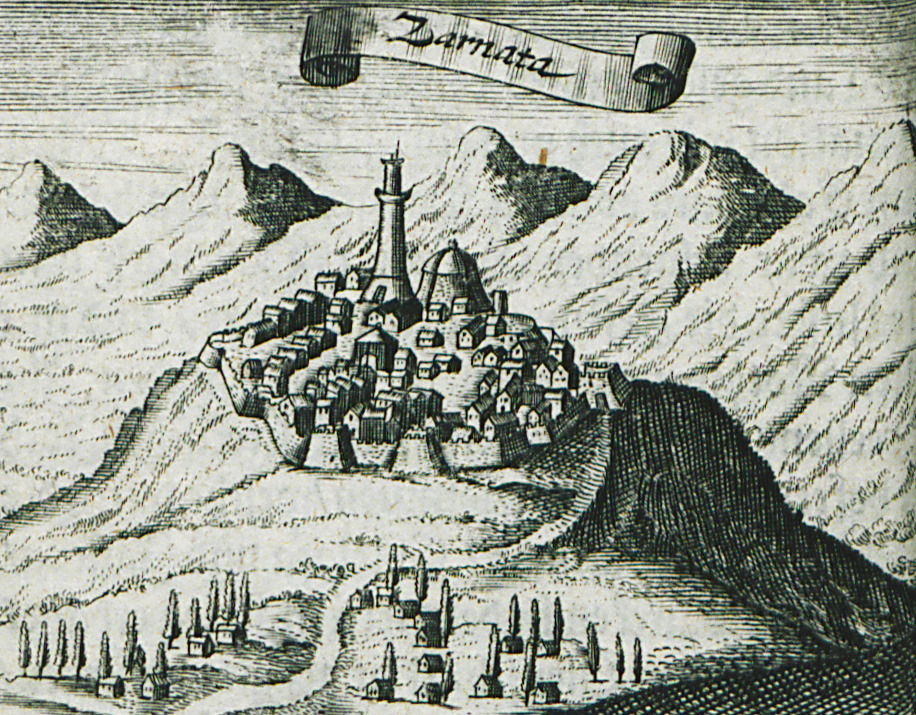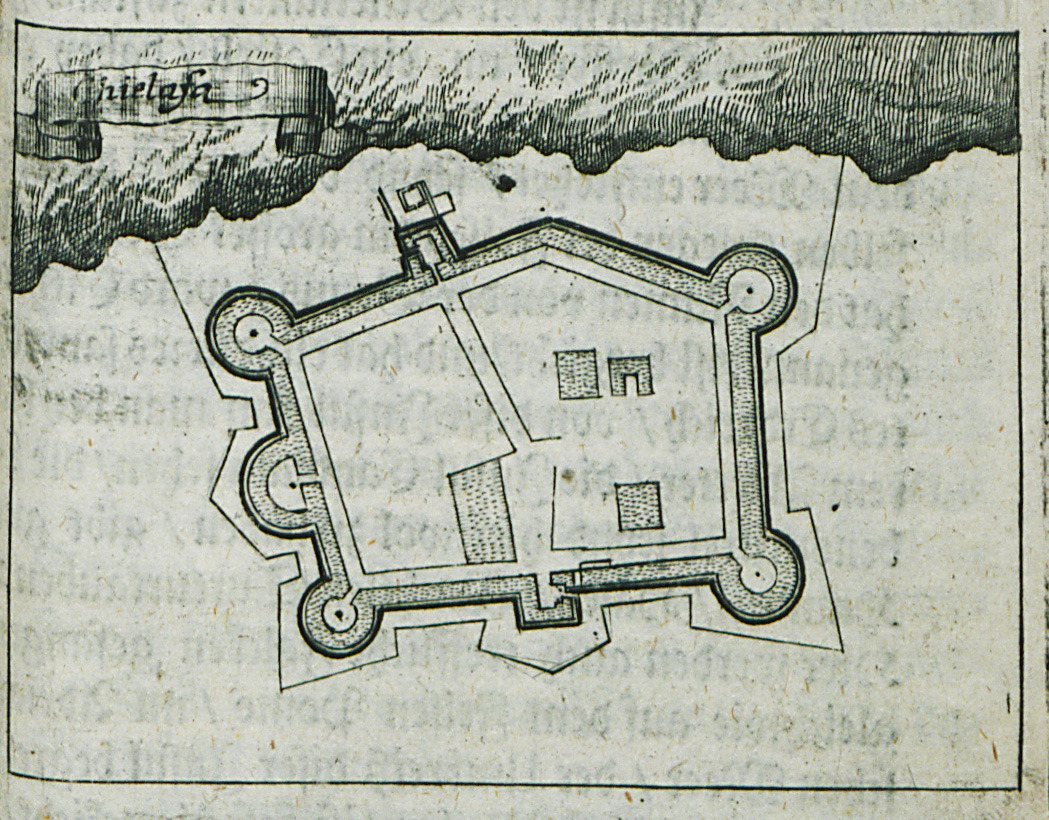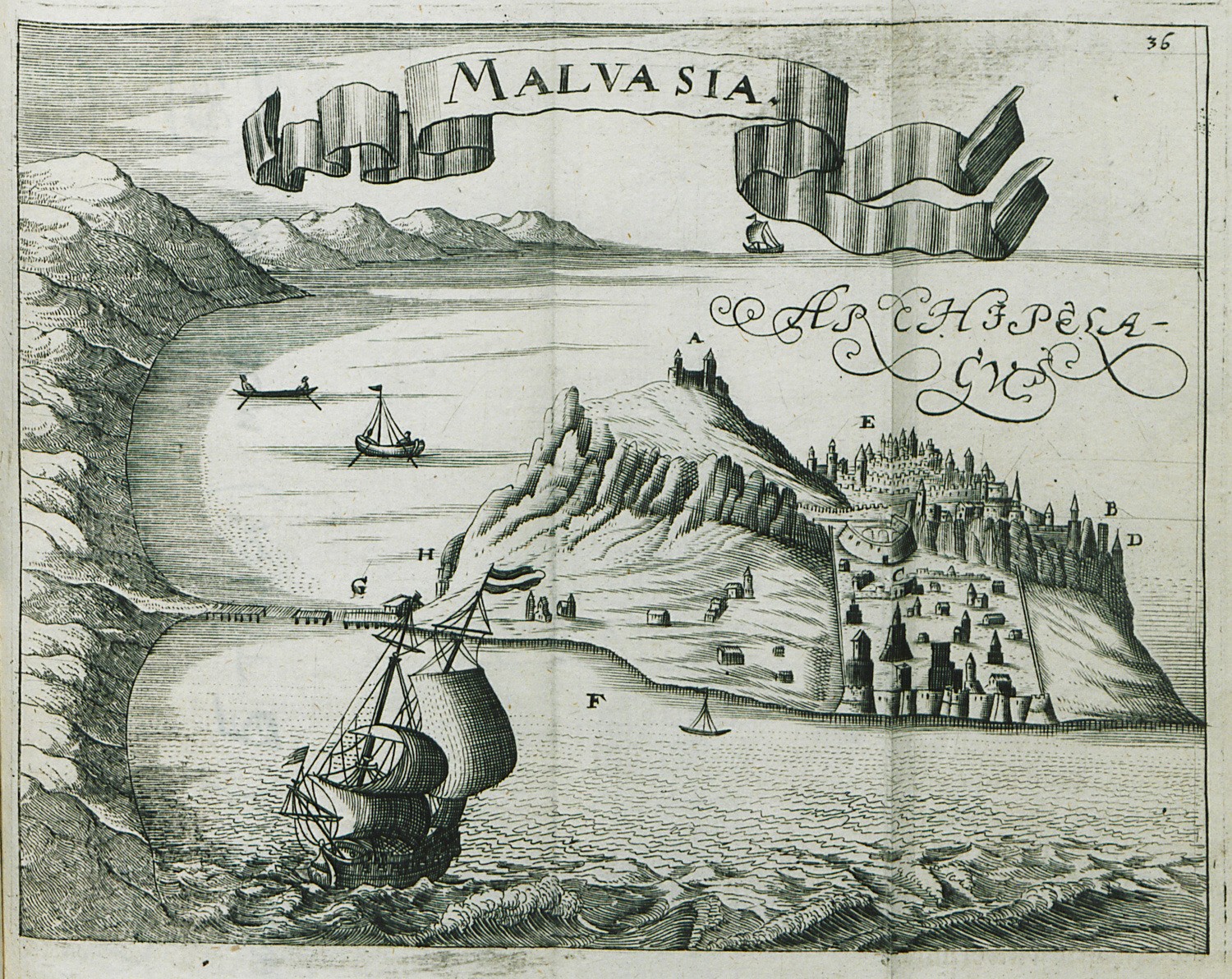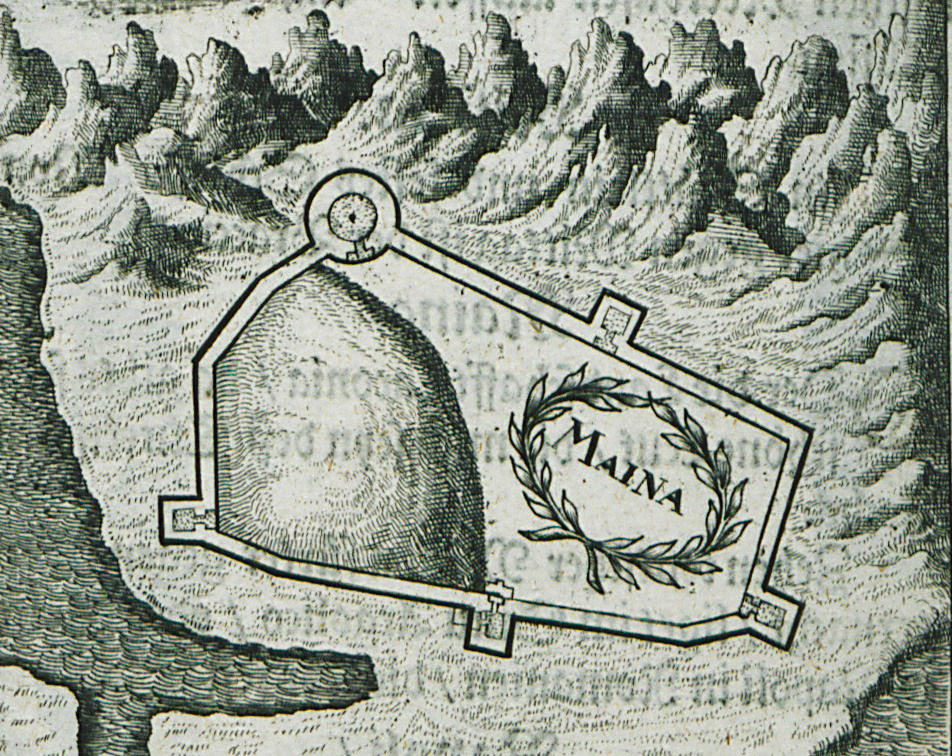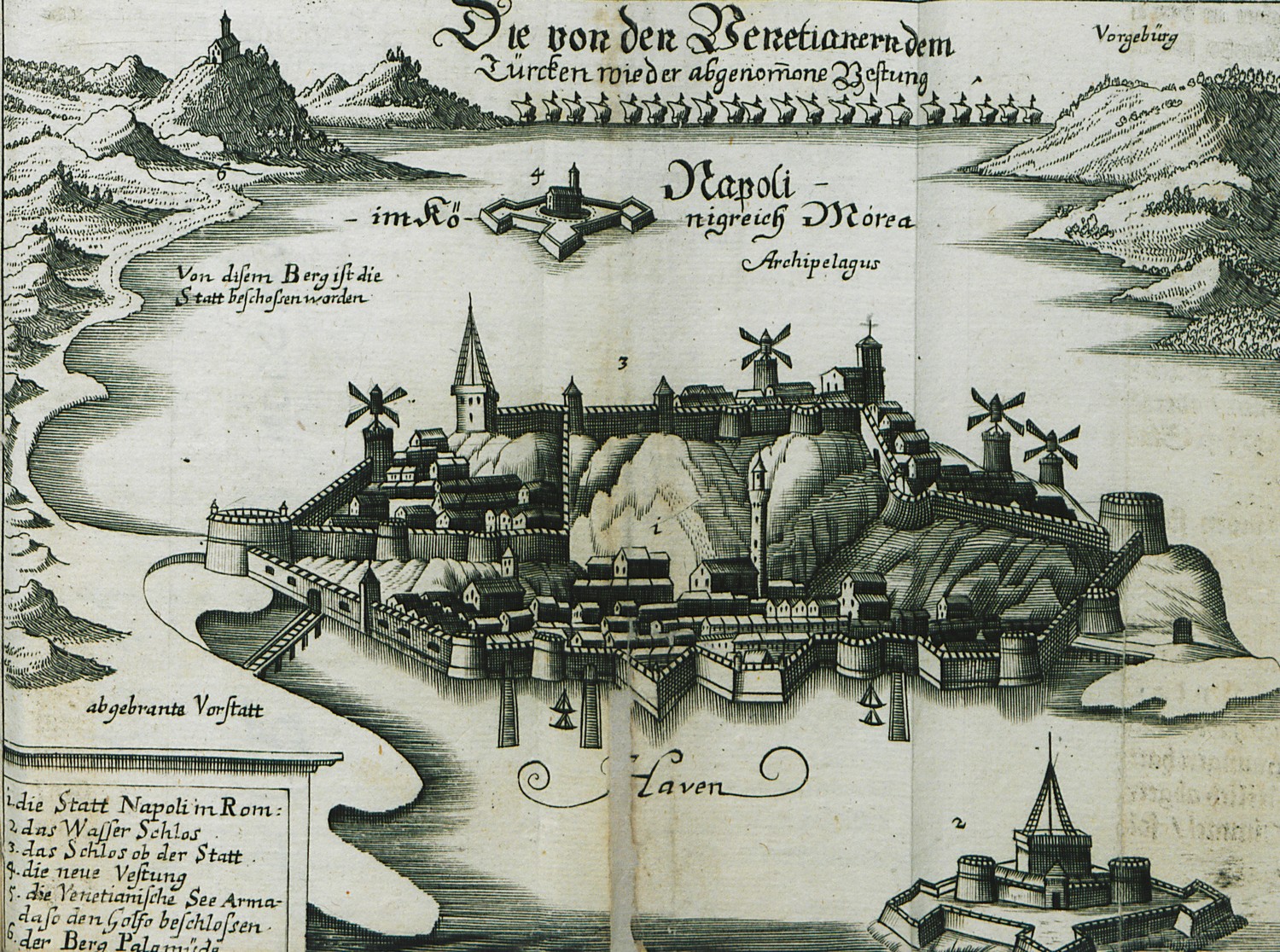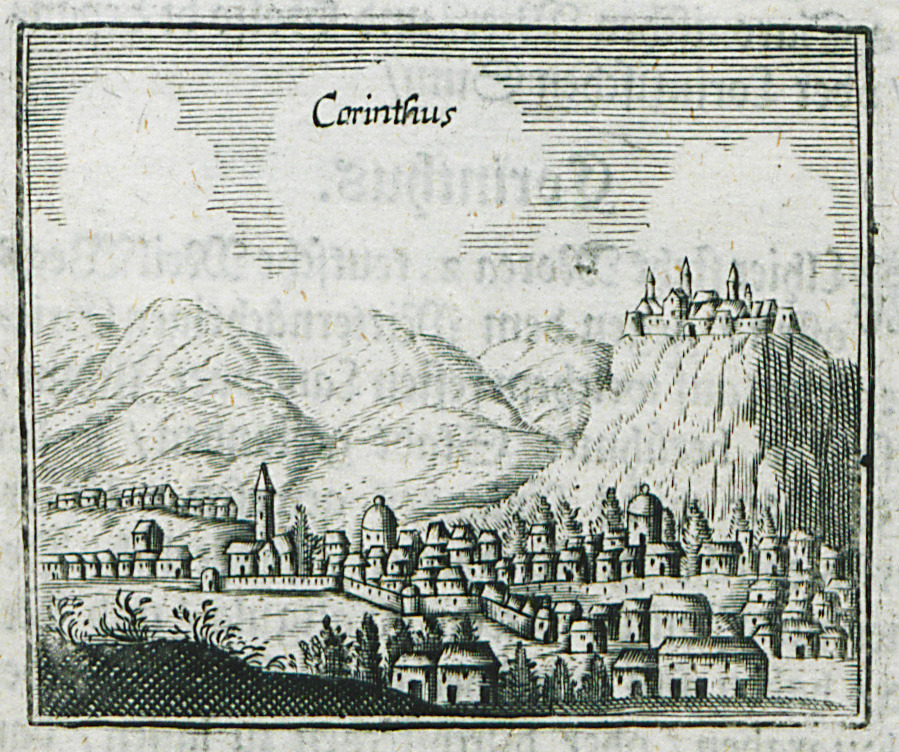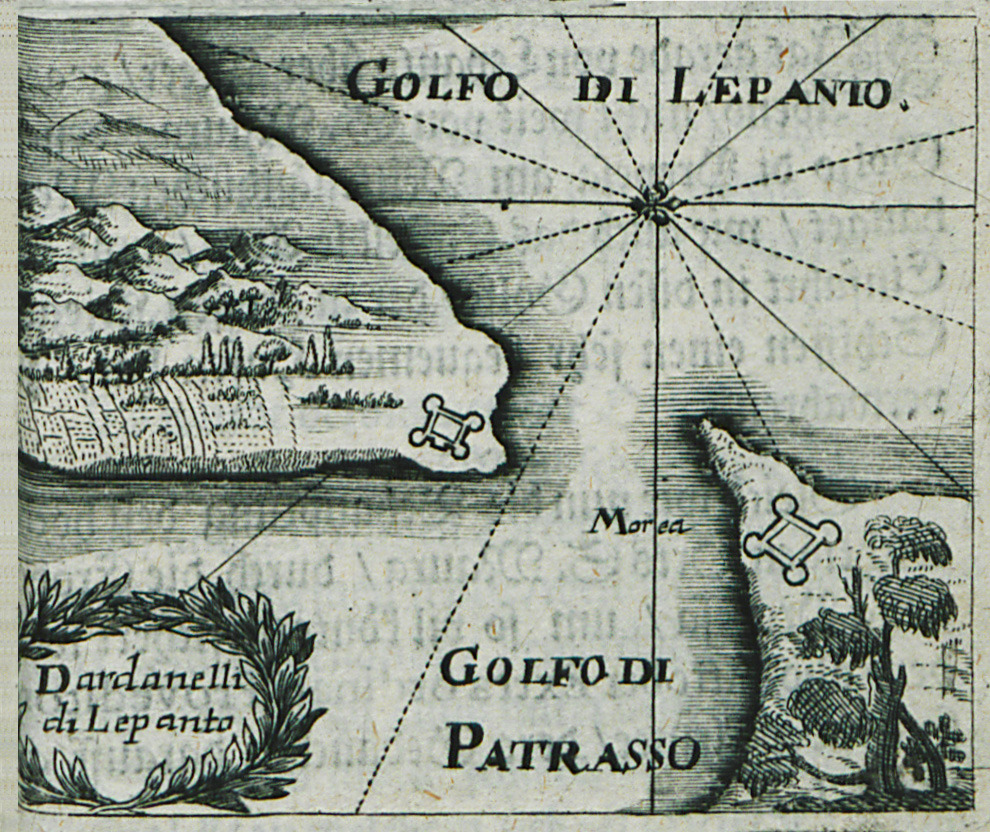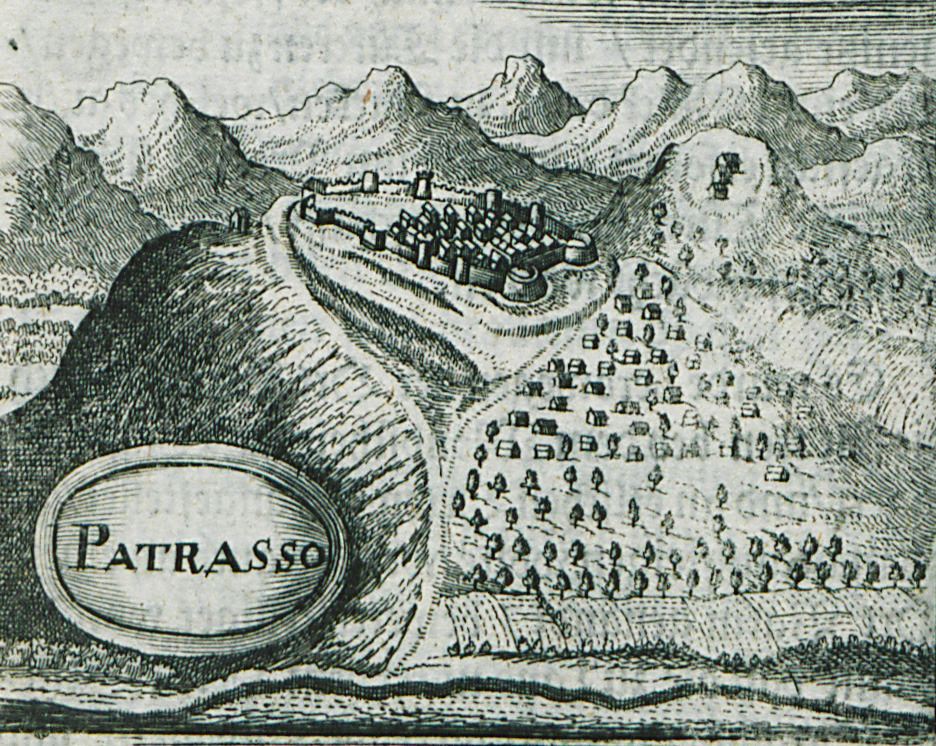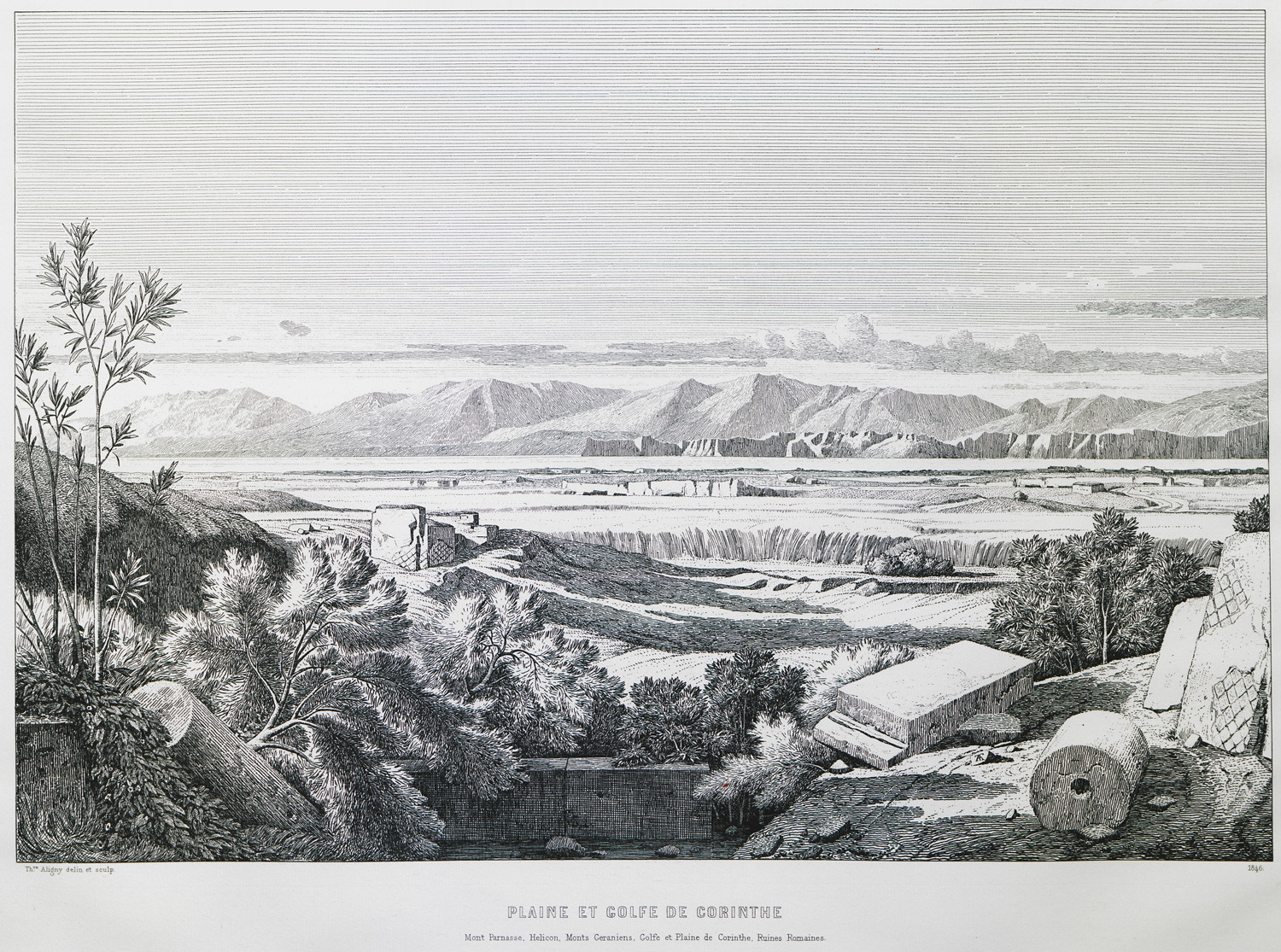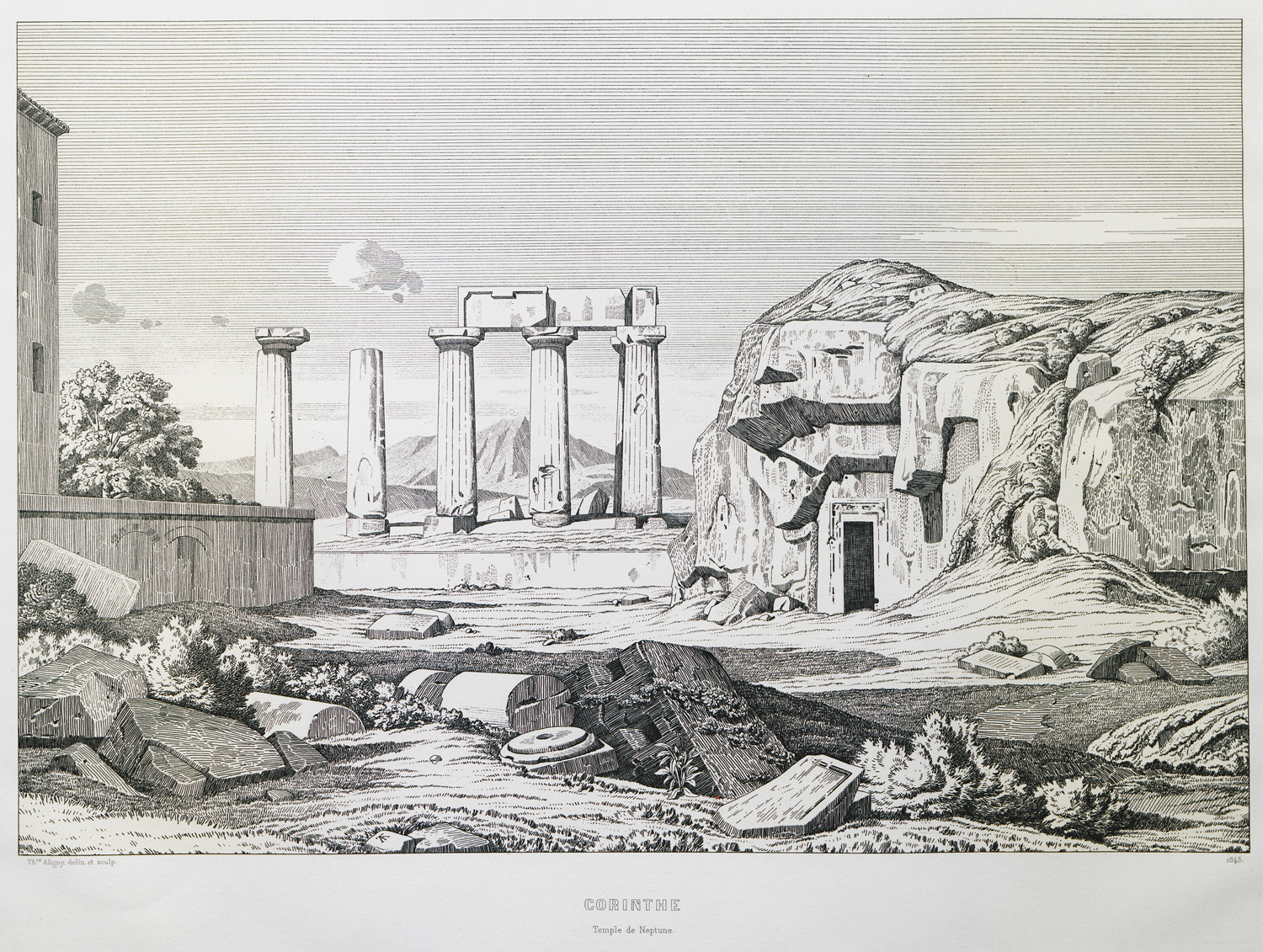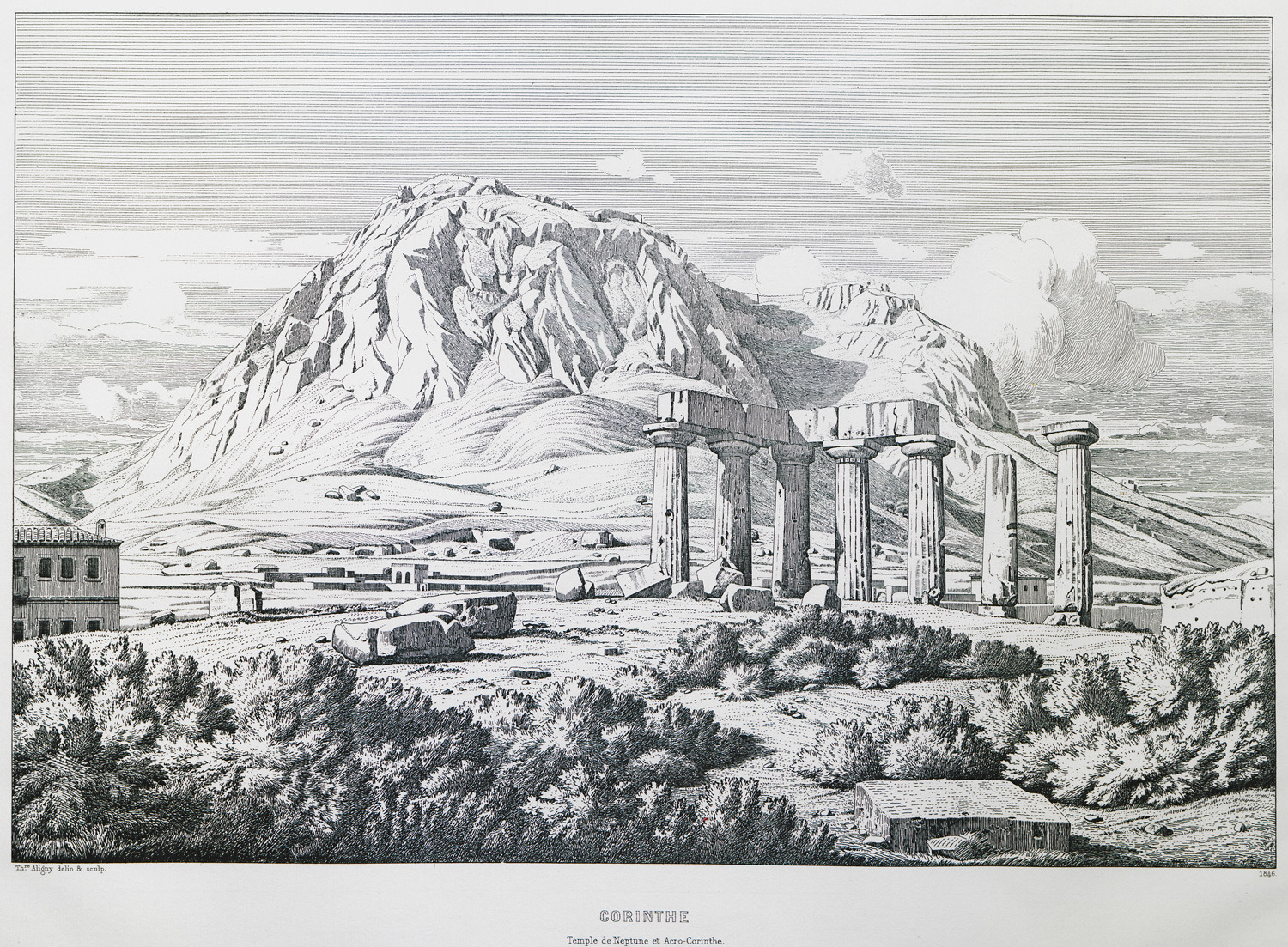Peloponnese (1650 Subjects)
The Gate of the Lions at Mycenae.
Plain of Ancient Olympia.
The temple of Apollo Epicurius at Bassae. On the left, the Turkish and the Tatar attendants of Edward Dodwell.
Lake Stymphalia, Corinthia.
The Monastery of Mega Spilaion in Achaia.
A kapetanios from Sparta, Peloponnese.
Women from the Peloponnese.
“Palikari”, member of irregular troops of the Peloponnese, with his clan.
“Palikaria” and heads of irregular troops at the temple of Apollo in Ancient Corinth.
View of Argo, Peloponnese.
The interior of the Tholos Tomb of Mycenae (Treasury of Atreus).
View of Methana, Argolis.
Landscape at Methana, Argolis.
Map of the Peloponnese.
Boustrophedon inscription, recorded by William Gell, from the throne of a statue at the Sacred Way of Didyma, the road leading from the Temple of Apollo to the sea. Inscription from a helmet at Olympia, votive offering of the city of Syracuse. William Leake cites the latter inscription to show how in Doric inscripions vowel crasis is employed so that inscriptions can end in dactylic hexameter.
Map of the Peloponnese.
View of the castle of Chlemoutsi near Mount Cyllene.
View of the castle of Coroni.
View of Pylos.
View of the castle of Zarnata on the peninsula of Mani.
Plan of the castle of Kelefa outside Oitylo, Peloponnese.
View of Monemvasia.
Plan of the castle of Maini at Cape Tainaron.
View of Nafplion.
View of ancient Corinth and the acropolis of Acrocorinth.
View of the strait of Rio and Antirrion.
View of Patras.
Landscape at the Corinthian Gulf. In the distance, Mount Parnassus and Mount Helicon.
The temple of Apollo at ancient Corinth.
Acrocorinth and the temple of Apollo at ancient Corinth.


